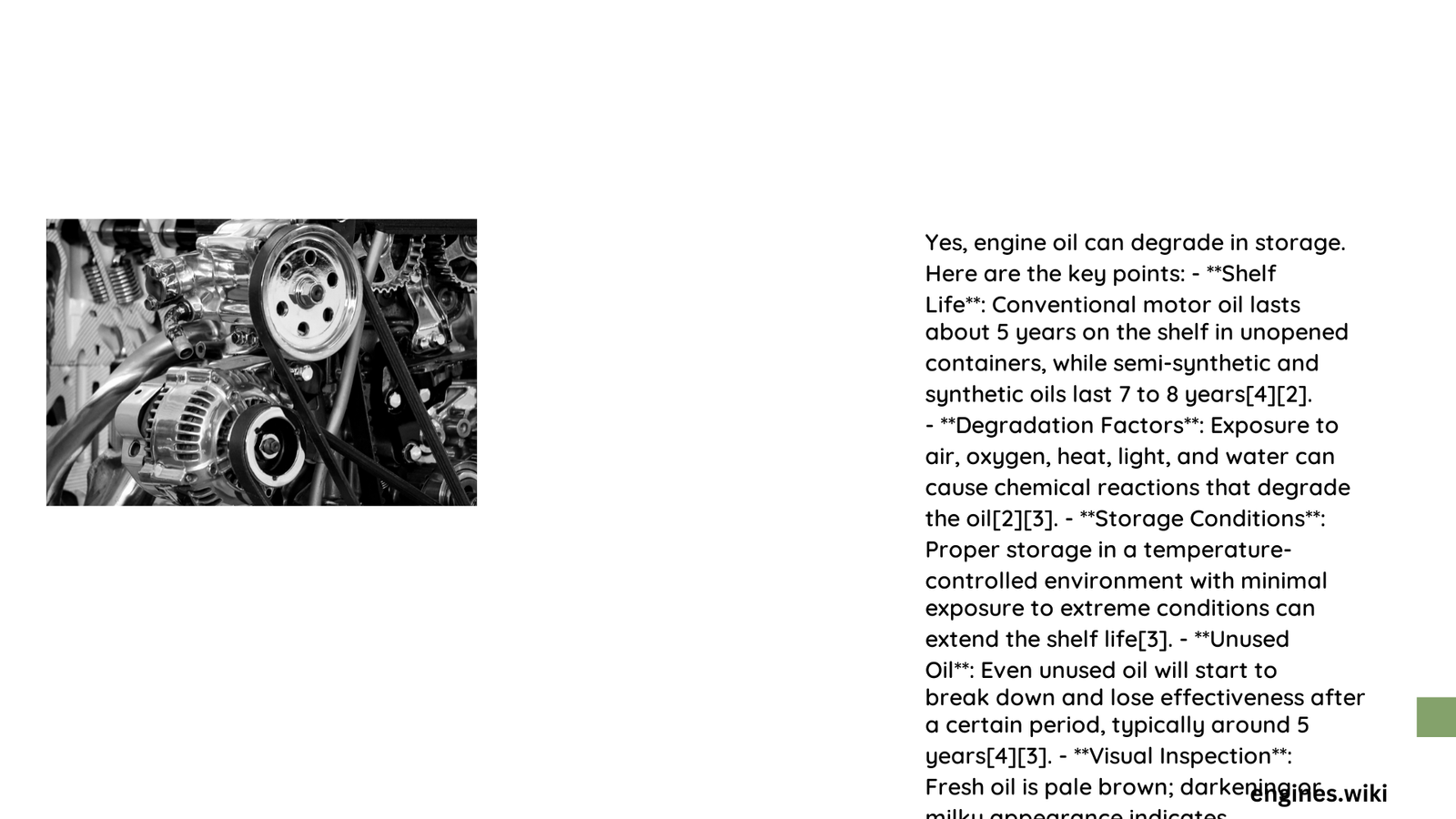Engine oil, a critical component for vehicle maintenance, can indeed deteriorate over time when stored improperly. Factors like temperature, humidity, and container integrity significantly impact its longevity. Depending on the oil type—conventional or synthetic—storage conditions can extend or reduce its usable lifespan, potentially affecting your vehicle’s performance and engine health.
What Happens to Engine Oil During Storage?
Engine oil is not immune to chemical breakdown and environmental influences. When stored, various factors contribute to its gradual degradation, potentially compromising its lubricating and protective properties.
How Long Can Different Oil Types Survive in Storage?
| Oil Type | Typical Shelf Life | Storage Conditions |
|---|---|---|
| Conventional Oil | 2-5 years | Sealed, cool environment |
| Synthetic Oil | 5-8 years | Controlled temperature, low humidity |
| Synthetic Blend | 5-8 years | Similar to synthetic oil requirements |
What Causes Engine Oil to Degrade?
Several critical factors accelerate engine oil deterioration:
- Temperature Extremes
- High temperatures cause chemical breakdown
-
Low temperatures can lead to viscosity changes
-
Moisture Exposure
- Humidity introduces contamination
-
Water can cause oxidation and additive separation
-
Sunlight and UV Radiation
- Direct light exposure damages oil molecular structure
- Breaks down protective additives
How to Identify Compromised Engine Oil?
Recognizing degraded oil is crucial for preventing potential engine damage. Look for these warning signs:
- Unusual color changes (darkening or cloudiness)
- Visible sediment or sludge formation
- Significant viscosity alterations
- Unusual odor or consistency
Best Practices for Engine Oil Storage
Proper storage can dramatically extend your engine oil’s usable life:
- Store in sealed, original containers
- Maintain temperature between 40°F and 80°F
- Keep away from direct sunlight
- Store in low-humidity environments
- Avoid frequent temperature fluctuations
Potential Consequences of Using Degraded Oil
Using expired or compromised engine oil can lead to:
- Increased engine wear
- Reduced lubrication efficiency
- Higher friction and heat generation
- Potential long-term engine damage
- Decreased fuel economy
Expert Recommendations for Oil Management
- Check manufacturer’s specific storage guidelines
- Rotate oil stock, using older supplies first
- Perform periodic visual and consistency checks
- When in doubt, replace questionable oil
Disposal and Environmental Considerations

Proper disposal of old engine oil is environmentally critical:
- Never pour oil down drains or on ground
- Use designated recycling centers
- Transport in leak-proof containers
- Follow local environmental regulations
Technical Insights on Oil Molecular Breakdown
At a microscopic level, engine oil degradation involves:
- Oxidation of hydrocarbon chains
- Depletion of performance-enhancing additives
- Molecular structure transformation
- Reduced protective capabilities
Conclusion
Understanding how engine oil behaves in storage helps vehicle owners maintain optimal engine performance and longevity. Regular inspection, proper storage, and timely replacement are key to protecting your vehicle’s critical systems.
